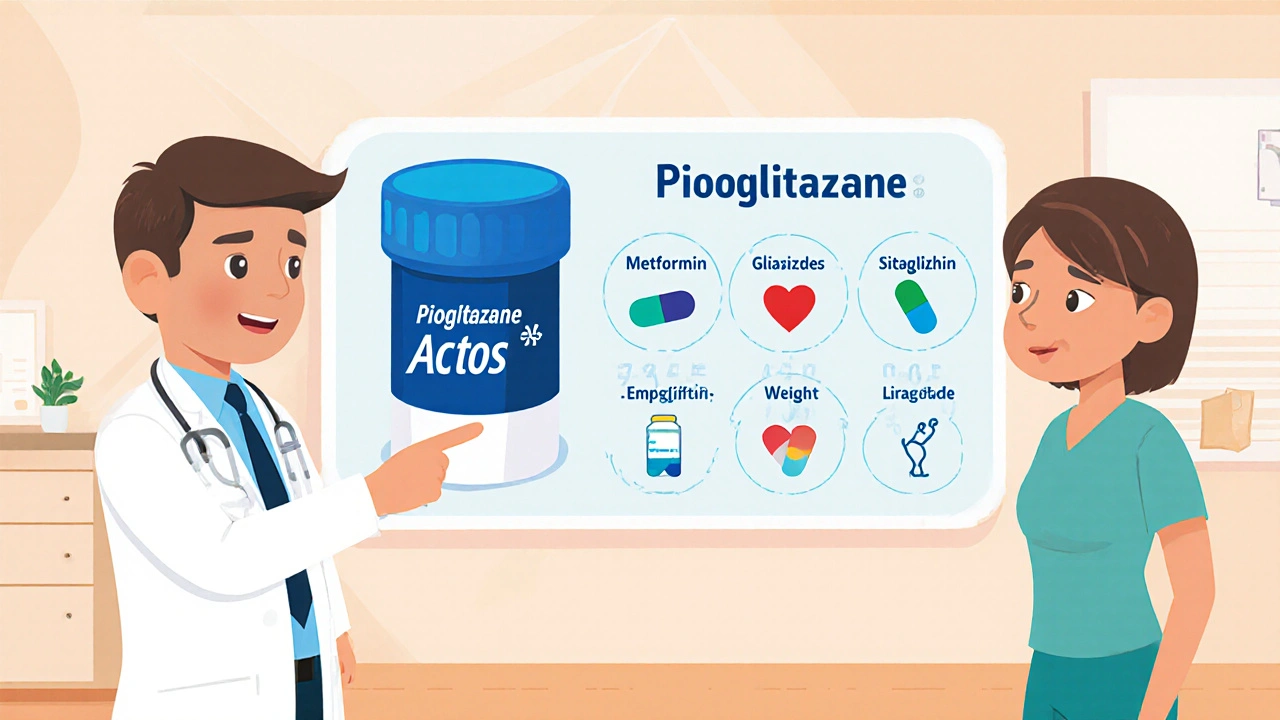Type 2 Diabetes Medications: What Works, What Doesn’t, and What to Ask Your Doctor
When you’re diagnosed with type 2 diabetes, a chronic condition where the body doesn’t use insulin properly, leading to high blood sugar. Also known as insulin resistance, it’s not just about eating too much sugar—it’s about how your body handles it. The right type 2 diabetes medications can make a real difference in how you feel, how much you worry, and how long you stay healthy. But with so many options, it’s easy to get lost. Some pills lower blood sugar fast. Others help you lose weight. A few even protect your heart. Knowing the difference isn’t just helpful—it’s life-changing.
Most people start with metformin, the first-line drug for type 2 diabetes that reduces liver glucose production and improves insulin sensitivity. Also known as Glucophage, it’s cheap, well-studied, and rarely causes weight gain. If that’s not enough, doctors often add sulfonylureas, a class of drugs that tell your pancreas to make more insulin. Also known as glipizide or glyburide, they work fast but can drop your blood sugar too low—if you skip meals, you’re at risk. Newer options like GLP-1 agonists, injectable medications that slow digestion, reduce appetite, and boost insulin only when blood sugar is high. Also known as semaglutide or liraglutide, they’re not just for blood sugar—they help with weight loss and lower heart disease risk in people with diabetes. These aren’t magic pills, but they’re the most effective tools we have right now for long-term control without crashing your glucose.
What you won’t find in most guides is how these drugs actually fit into daily life. Some need to be taken twice a day. Others are once-weekly injections. Some cause nausea at first. Others make you pee more. And while some people do great on metformin alone, others need a combo of three or more drugs to stay in range. The key isn’t finding the "best" drug—it’s finding the one that works with your body, your routine, and your goals. That’s why the posts below cover real comparisons: how metformin stacks up against newer options, why some meds cause weight gain while others help you lose it, and what side effects most doctors don’t mention until it’s too late. You’ll see how people actually manage these meds, what works in practice, and what to ask your doctor before you start—or switch.

Pioglitazone (Actos) vs Top Alternatives: A Clear Comparison
A detailed side‑by‑side comparison of Pioglitazone (Actos) with top diabetes drug alternatives, covering efficacy, safety, cost and when each option makes sense.
October 21 2025